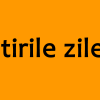Meet the 21-yr-old Norwegian who defied Hollywood
Monday, October 17, 2005
By Steve Stecklow, The Wall Street Journal
Jon Lech Johansen dropped out of high school after just one year. He lives alone most of the time, except when he stays with his parents in his native Norway. The 21-year-old doesn’t drive, rarely goes to parties and says he has no close friends, except his father. He spends about nine hours a day in front of his computer screen.
Yet this reclusive young Norwegian is the man who may be the entertainment industry’s worst nightmare. Mr. Johansen, Hollywood executives claim, has done more than almost anyone in the world to ignite the explosion of movie piracy on the Internet, costing them billions of dollars in lost sales. He scoffs at that.
At the age of 15, Mr. Johansen wrote a computer program that allowed users to copy DVDs. Then he posted it on the Internet. A Norwegian private school awarded him a prize for making an outstanding contribution to society. The Norwegian government indicted him.
Mr. Johansen, whom the local press dubbed „DVD Jon,” was tried twice in Oslo in criminal proceedings that featured testimony from Hollywood executives who maintained his program had unleashed a tidal wave of piracy. Supporters organized on the Internet and printed T-shirts and ties emblazoned with Mr. Johansen’s software code; it even inspired a haiku. A small group marched in Oslo’s May Day parade carrying a sign that read, „Free DVD-Jon.” Mr. Johansen was acquitted both times.
He has since moved on. These days he is targeting Apple Computer Inc., repeatedly hacking the software that runs its poplar, Internet-based iTunes music store to remove restrictions on how many times legally bought songs can be copied or on which devices they can be played. And Mr. Johansen says he may take a look at the new version of iTunes Apple released this week, which offers TV shows that can be played on new iPods – although he’s not too interested in trying to defeat its anticopy technology yet because he says the shows’ video resolution is too low to look good on computers or TV sets.
An Apple spokeswoman declined to comment on Mr. Johansen.
Mr. Johansen may not be a household name in America. But he is lionized by people who, like him, believe that when they legally buy digital entertainment they should be free to use it as they please; fans have downloaded more than a million copies of his free software programs.
To others, he’s a menace. His programs „spawned a whole new industry” of downloading pirated movies, says Andy Setos, president of engineering for News Corp.’s Fox Group. „Our profitability has been hurt.” He also says Mr. Johansen’s acquittals „caused people to begin to believe that it was OK to ignore” DVD copyrights.
A recent study by Student Monitor LLC, which tracks trends on college campuses, found 67 percent of undergraduates are either „in favor” of downloading pirated music or movies, or find it „acceptable because everyone does it.” And it’s not just kids – the head of one music label privately admits his father uses Mr. Johansen’s program to duplicate rental DVDs „so he doesn’t have to pay late charges.”
For his part, Mr. Johansen says he’s no pirate and respects copyrights. People who use his programs for illegal purposes should be prosecuted, he says. He also disapproves of hackers who spread computer viruses or break into corporate security systems.
But Mr. Johansen vows to continue unlocking the digital restrictions placed on copyrighted online entertainment, known in the industry as „digital rights management.” He describes himself as a defender of consumer digital rights, and says his software tools are aimed at an industry that is penalizing honest buyers by, among other things, forcing them to watch commercials or haul around their DVDs when they travel instead of letting them copy them to their laptops.
„I don’t mind paying for good products,” he says. „But when I do pay I want to use those products the way I prefer.”
Emboldened by his acquittals, he regularly boasts of his exploits on an online diary, or blog. He calls it „So Sue Me.”
Piracy of copyrighted entertainment isn’t new. For years, people copied record albums onto cassette tapes and traded them, a violation of copyright law that was generally overlooked because the quality of the copies wasn’t great. But with the advent of digital entertainment on compact discs and more powerful personal computers, perfect copies could be made easily. The music industry initially took no technological steps to prevent copying from CDs. When DVDs were introduced in 1997, the film industry encrypted their content to try to avoid the piracy then already beginning to plague the music business.
In Hollywood’s view, Mr. Johansen sparked a huge increase in movie pirating around the world by posting his program on the Internet. Mr. Johansen disputes this, arguing the biggest film pirates mass produce DVDs using the same equipment the industry uses, not his software program.
This summer, inside a small, rented vacation house in a village near St. Tropez, Mr. Johansen’s younger sister, Cathrine, 16, and a friend were watching an episode in English of the California-based TV series, „The O.C.,” on a legally purchased DVD. His father, Per, a bearded, 54-year-old retired postal service manager, and his mother, Maria, were preparing lunch. Mr. Johansen was upstairs, taking a shower and preparing his best beard products. He came down a few minutes later, a husky young man, with short-cropped dark hair, a wisp of a beard and pale skin despite the searing Mediterranean sun. Except for the facial hair, he is a young duplicate of his father; they even wear identical, rectangular-shaped, wire-rimmed glasses.
The younger Mr. Johansen left high school when he was 16, „because school wasn’t challenging at all,” he says. He worked briefly at a Norwegian interactive-television company and then spent two years at a startup that was developing a payment system for cellphones. He learned to speak fluent English mostly by watching American movies and using computer programs. „Life outside school has proven to be much more educational,” he says.
He says he currently earns about $4,500 a month as a developer for a French software-consulting business he set up with his father. Their business card shows a color photo of a multi-storied, high-tech building. The company’s headquarters? No, Per Johansen says with a laugh – he got the image from a Web site that offers free business cards. Their company actually is based in a modest house in Provence where Mr. Johansen lives most of the year and it has only a handful of clients.
Growing up, Jon Johansen wasn’t an average child, his father recalls. „When other parents had to yell at their children to do their homework, I had to say, ‘You’ve done enough now. Can’t you go out and play?'”
Mai Grimholt, who taught Mr. Johansen in middle school, remembers a serious student who liked politics and wasn’t afraid to take unpoplar views, such as arguing Norway should join the European Union, something the country hasn’t done. „He would stand up for what he believed in,” Ms. Grimholt says. She remembers another thing: He knew more about computers „than any of the teachers who had ever studied computers.”
Mr. Johansen says he was writing simple programs at the age of 12. It was a passion he shared with his father, who, without his wife’s knowledge, once spent three months of his salary on a personal computer. By 14, he had surpassed his father’s computer skills. His father says he realized this after buying a digital camera that came with software to transfer photos to a PC.
Frustrated because the program kept crashing, he says he showed it to his son, who „reverse-engineered it and wrote small, tiny software” to do the job. While the original program required about 25 steps to transfer photos, his son’s worked with just one. „It never crashed,” Per Johansen says.
The younger Mr. Johansen’s other great love was movies – he had purchased more than 300 DVDs – and in 1999 he bought a kit to play them on his own computer. He created a Web page and oversaw an online discussion group about the equipment. He also wrote a program to defeat the geographical-coding restrictions on the DVD player so he could watch American discs – which cost much less than ones sold in Norway but wouldn’t play on European machines. He posted his program on his Web page to share it with others.
Mr. Johansen also wanted to copy DVDs to the hard drive, or stored memory, of his PC, a process known as „ripping,” so, among other things, he didn’t always have to take DVDs with him when he traveled.
In September 1999, Mr. Johansen enlisted the help of his online discussion group, whose members went by pseudonyms. With their contributions – one of them figured out how to circumvent the encryption – he wrote a simple program that quickly ripped DVDs. After testing it successfully on his own legal copies of „The Matrix” and „The Fifth Element,” he posted it on his Web site.
Unlike his confederates – to this day he says he doesn’t know their real identities – he made no secret of his name because he believed he hadn’t done anything wrong. Per Johansen says he was aware of what his son had done, and „thought it might be a legal problem.” It also attracted the attention of the media. Within weeks, stories began appearing that identified his son as the teenager who cracked the encryption code for DVDs, realizing Hollywood’s worst fear.
The international affiliate of the Motion Picture Association of America, which represents Hollywood studios, asked the youngster to remove his program from the Internet. He complied, but re-posted it about a week later after his father consulted a lawyer and became convinced the program was legal. The younger Mr. Johansen became instantly famous in Norway. His former teacher, Ms. Grimholt, sent him a congratulatory email. „Jon, the sky’s the limit,” she wrote.
At a ceremony on Jan. 15, 2000, a private Oslo school presented him with the Karoline Prize, awarded annually to a top high-school student. It carried an award of about $2,000. Mr. Johansen says he spent more than half of it on a top-of-the-line Sony DVD player.
Nine days later, Norwegian police officers, acting on a complaint from the MPAA’s international affiliate, raided Mr. Johansen’s house and seized his computer. They brought the teen and his father to the station and interrogated them each for about seven hours. Jon Lech Johansen says he cooperated, even providing the police with passwords to his PC. „I thought I had nothing to hide,” he says, adding, „I was naive.”
In 2002, Jon Lech Johansen was indicted on charges of gaining unauthorized access to a DVD and causing damage by posting his program on the Internet. By that time, a federal judge in New York had already ruled, in a civil case brought by Hollywood studios, that publishing or linking to Mr. Johansen’s program on the Internet violated U.S. law.
With his criminal indictment, the Norwegian teen became a cause celebre across the Internet. And not just among movie and music downloaders, but among computer programmers and free-speech advocates as well.
Hakon Wium Lie, a Norwegian computer engineer, carried a „Free DVD-Jon” sign in the 2002 May Day parade in Oslo and picketed a police station. „The sight of policemen running into this child’s room I think upset a lot of people,” says Mr. Lie, who is chief technology officer of Opera Software, an Oslo company that developed an alternative Web browser to Microsoft’s Internet Explorer. „Some of us felt, including myself, that we might be the target next time.”
David S. Touretzky, a computer-science professor at Carnegie Mellon University in Pittsburgh, says many professional computer programmers „were outraged” over the prosecution of Mr. Johansen, because they considered posting a program on the Internet a matter of free speech.
Dr. Touretzky says he continues to admire Mr. Johansen, especially his latest campaign against Apple. „He’s still doing it. The guy’s unrepentant,” he says. „It’s great.”
The San Francisco-based Electronic Frontier Foundation, an advocacy group that favors fewer restrictions on digital technology, financed Mr. Johansen's initial legal costs. "He made a laughing stock of Hollywood, basically by showing that a 15-year-old kid could break through their super security system ... that was protecting their billion-dollar market," says John Gilmore, one of the group's founders. Halvor Manshaus, a young Oslo private attorney who normally represents intellectual property holders such as publishers, volunteered to serve as the youth's public defender. "My feeling was he was outmatched," Mr. Manshaus says. It was the attorney's first criminal trial.
For six days in December 2002, a three-judge panel heard the case in Oslo. The head of the DVD-licensing organization flew in from California to testify. Over two days, Mr. Johansen calmly explained what he had done and how he did it. The trial mesmerized Norway; the verdict was broadcast live on the radio.
In the end, the court found that because he had legally purchased the DVDs he had ripped, there was nothing wrong with making copies for his own private use. The judges also found that even though he had posted his program on the Internet, there was no actual proof that it had been used for illegal purposes. Afterward, on the courthouse steps, Mr. Johansen declared he was going home to watch a DVD stored on his computer’s hard drive.
Norwegian prosecutors appealed the verdict. Mr. Johansen was retried in December 2003. Again, he was acquitted. „We made him a star,” says Thomas Dillon, an attorney for the MPAA in Brussels. That time, the judges noted that downloading movies wasn’t practical in 1999 because broadband wasn’t widely available and it could take 12 days to transfer a full-length feature film using a dial-up connection.
Chief prosecutor Inger Marie Sunde now says the Norwegian government’s case against Mr. Johansen was hindered by an ambiguous law and the difficulty in proving „the connection between something that you have posted on the Internet and the damage done by it.”
Even before his retrial began, and to the dismay of his own attorney, Mr. Johansen began going after Apple. He says he spent 80 hours dissecting iTunes, figuring out how it places digital restrictions on songs and how to circumvent them. In Mr. Johansen’s view, Apple’s restrictions on iTunes songs – which, among other things, limit the number of times purchased songs can be copied without a loss of quality – are „even worse than DVDs” because Apple retains the right to change the rules even after a consumer buys a song. „What will they allow you to do tomorrow?” he asks.
Mr. Johansen also recently circumvented – in less than an hour – an early version of a Google Inc. video-player program that only played Google-authorized videos. With his „patch,” the program could play other videos as well, including pirated ones. Google has since updated its video technology.
In the six years since Mr. Johansen posted his DVD-copying software on the Internet, the online world has been transformed. High-speed Internet has become available globally and a feature film now can be downloaded in as little as 12 minutes. A slew of other software tools to rip DVDs have surfaced. To the dismay of the film industry, piracy not only has mushroomed, but has become morally acceptable to many – one studio says its internal research shows that a majority of Americans see nothing wrong with it.
Meanwhile, Hollywood and the high-tech industry are now haggling over the next generation of DVDs, which they promise will have much stronger anti-copy protection but privately concede will never be completely hacker-proof. Movie studios also vow to address some of Mr. Johansen’s complaints, offering consumers new options like allowing films to be copied onto hard drives legally, but probably for a price.
In June, Norway overhauled its copyright law, making illegal the posting of a program that defeats a DVD’s anti-copy protection technology.
As for Mr. Johansen, he now says he plans to move to a different jurisdiction with more job opportunities and a better climate – southern California. He hopes to take a job in the computer industry. „Of course,” he says, „when I’m in the U.S., I will take great care not to break any U.S. law.”










Wow… Excelent articol. De mult nu am mai stat „lipit” de monitor sa citesc ceva Pana acum am auzit de el si ispravele lui doar pe /., dar nu am avut curiozitatea sa aflu mai mult. Thanks
Pana acum am auzit de el si ispravele lui doar pe /., dar nu am avut curiozitatea sa aflu mai mult. Thanks
cum a zis si KeinEngel. Excelent articol super tare Mr Johansen
super tare Mr Johansen
ty zoso, interesant, nici eu nu m-am putut dezlipi de monitor pana la final
bah, omu asta chiar e tare….si il sustin……DA ARTICOLUL ASTA E PREA LUNG !!!!!!! dal in m*rtii m*sii k nam atata rabdare si ma si dor ochii !!! oricum articolul e interesant !!
merita citit, iti garantez.
Nice!
kewl
bram cohen tot tata lor ramane
daca nu era omu asta, nu mai aveam nici o melodie in playlist
bv lui!